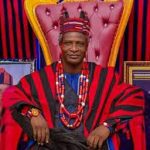
HRM. AGABA IDU PASTOR ELAIGWU ODOGBO JOHN, CON – OCH’IDOMA V OF IDOMA KINGDOM
He was born on the 27th of March, 1969 as the 5th child to the family of Mr. Elaigwu Ekoja in Obagaji the headquarters of Agatu Local Government Area of Benue State
HRH Agaba- Idu Elaigwu Odogbo Obagaji John is a man with integrity and high moral standards and a servant of God.
1- Pst. Elaigwu, Odogbo Obagaji John is a graduate of the prestigious Ahmadu Bello University Zaria (1994) with B.Sc Honours in Accounting
2- Master in Business Administration (2012) from Benue State University.
3- Post Graduate Diploma in Education (2015) from National Teacher Institute.
4- M.Sc Accounting and Finance, Nasarawa State University, Keffi.
5- Phd (in view) in Accounting from Nasarawa State University Keffi.
6- He is a Fellow of Chartered Institute of Taxation of Nigeria (FCITN)
7- Fellow Certified National Accountants of Nigeria, (FCNA)
8- Associate member of Nigeria Institute of Management.
9- A Group Pastor (Penticost Group)
Deeper Life Bible Church.
HRH Agaba-Idu, Pst. Elaigwu has been running his professional career with Federal Inland Revenue Service (FIRS), where he worked for 23 years and has risen to the position of Assistant Director.
HRH Agaba-Idu, Pst. Elaigwu held so many positions in FIRS within the period of his service to the organization.
He was Chairman, Association of Senior Civil Servants of Nigeria for two tenures from 2004 to 2012.
He also served as National Exofficio of the same Association from 2012 to July 2018.
Pst. Elaigwu is an erudite trainer (resource person in FIRS) and a thorough professional with vast experience in taxation and Accounting through International training and development among which are:
1- Enhancing Critical Skills In The Fight Against Corruption – Accra, Ghana, 2005;
2- Enhancing Secretarial Functions For Optimum Performance – Benin Republic, 2006;
3- Modernization Of Tax Administration – South Africa, 2008;
4- International Seminar On Taxation – Japan, 2011;
5- Developing Strategic Skills For Organizational Improvement – London, 2012;
6- Strategic Leadership Planning And Conflict Management – South Africa, 2013;
7- Corporate Governance And Strategic Management Workshop, Dubai – 2015.
8- Globalization And Worker Relationship – New York, USA, 2018.
Comrade, Pst. Elaigwu left Federal Inland Revenue Service in 2016 to set up his consultancy firm and other related companies such as:
1- Esan Gods Integrity Consults. (EGIC.) Tax Consultancy And Management Firm.
2- Elmaro Elaigwu & Co. (EE&C.) Audit Management Consultancy Firm.
3- EMEU God’s Professional Academy Limited. (EGPAL.) Professional Training Consultancy Firm.
HRH Agaba – Idu, Pst Elaigwu is a man who is guided by this noble philosophy of:
“The longest distance to success is short cut and must not be considered or deared”.
Pst. Elaigwu is married to Mrs Martha Omabo Elaigwu and is blessed with five children
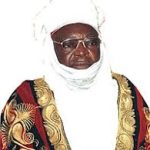
HRM. AGABAIDU ELIAS IKOYI OBEKPA – OCHI’IDOMA IV (1924-1995) PROCEEDED ON HUNTING
The family of Chief Obekpa Onoja of Ipole-Otukpa in Ogbadibo Local Government Area welcomed HRH, Agabaidu Elias Ikoyi Obekpa, also known as the Ochidoma IV, into the world on December 31, 1944.
HRH Obekpa was admitted to St Enda’s Teachers College, Bassawa-Zaria, upon receiving his First School Leaving Certificate from St Mary’s Primary School, Otukpo. The college subsequently changed its name to Bassawa Teachers College in 1973 before evolving into the current FGGC Zaria in 1998.
When HRH Obekpa earned his Teacher Certificate Grade II in 1966—the minimum qualification needed to teach in elementary schools until 1998, when the Nigerian Certificate in Education (NCE) replaced it as the requirement—he fulfilled a lifelong dream.
From 1967 to 1968, HRH Obekpa worked as a primary school teacher in Samaru-Zaria before moving on to the Benue-Plateau State Government. Later on, he would become a headmaster before quitting to pursue graduate studies at the esteemed Ahmadu Bello University (ABU) in Zaria in 1971.
HRH Agaba -Idu Obekpa studied business administration at ABU, where he earned a BSc (Hons) degree in 1974. She also served in Cross Rivers State for the 1974–1975 service year, as part of the then-new National Youth Service Corps (NYSC) program. After completing his national service and study leave, HRH Obekpa returned to the Benue-Plateau State Civil Service and changed careers, joining the Ministry of Finance as a Tax Administrator.
Not surprisingly, the Idoma kingmakers chose HRH Agaba -Idu Obekpa to succeed HRH Agabaidu Edwin Ogbu, the Och’Idoma III, in April 1996 After he proceeded on a hunting expedition On Saturday, December 10, 1996, at a lavishly decorated event in Otukpo, HRH Obekpa departed from BIRS to assume the title of Och’Idoma IV.
During his 25-year reign, HRH Agaba -Idu Obekpa established a reputation as a man of peace and harmony by serving as a mediator between politicians and opinion leaders with divergent viewpoints. He oversaw a significant improvement in ties with neighboring tribes and between communities in Idoma Land. Chiefs and District Heads in Idoma Land are now held in high regard, a development that was also attributed to HRH Obolno.
The Federal Government bestowed a national honor, the Commander of the Order of the Niger (CON), on HRH Agaba -Idu Obekpa, the Chairman of the Idoma Traditional Council and Vice Chairman of the Benue State Council of Chiefs, on September 30, 2006, in recognition of his contributions to the advancement of peace, unity, and harmony in Nigeria.
HRH Agaba -Idu Obekpa was the Chancellor of Federal University of Kashere and was married to Chief (Mrs) Florence Alametu Obekpa (nee Edache), a retired Matron for 52 years and their long marriage was blessed with nine children (three sons and six daughters).
HRH Obekpa proceeded a hunting expedition on 9th October 2021.
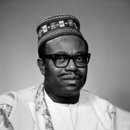
HRM. AGABAIDU AMB. DR.EDWIN OGEBE OGBU – OCHI’IDOMA III (1926-1996)THEN PROCEEDED ON HUNTING
On December 28, 1926, he was born in Utonkon, in the Idoma Division of the former Benue Province. That is his tale—the tale of a great person born. He attended Methodist College in Uoakoli, in the former Eastern Region, from 1938 to 1945, and Primary School in Utonkon and Igumale from 1933 to 1937. He completed his B.Sc. program at Bethume Cockman College in Florida, USA, from 1948 to 1951, and his master’s program at Stanford University in California, USA, from 1952 to 1955.
Without a doubt, Edwin Ogbu made his reputation as the father of the Federal Service, but the Northern Regional Service is where this Civil Service teeth began. He advanced to the position of Secretary, Students Affairs Nigeria High Commission, London in 1960; Assistant Secretary, Northern Ministry of Finance, Kaduna in 1957; Secretary, Federal Public Service Commission, 1960–1962; and Permanent Secretary, Federal Ministry of Works, 1962–1963.
In the midst of the Nigerian Civil War, he served as the first Permanent Secretary from Niger as the Ministry of Finance from 1963 to 1966 and as the Ministry of External Affairs in 1966. He was named the nation’s Permanent Representative to the United Nations from 1968 to 1975 in order to represent the genuine Nigerian situation to the entire world, in recognition of his outstanding work in the Ministry and the important task ahead during the climactic days of the war.
From 1970 until 1974, he held the positions of High Commissioner for Guyana, Barbados, Jamaica, Trinidad & Tobago, and Guyana. Among the diplomats who constructed the link between West Africa and the Caribbean nations was Dr. Ogbu. In 1975, he served as Chairman of the United Nations Council against Apartheid in Namibia. In 1975, following a fruitful diplomatic assignment, he retired from the service. In that same year, he was named Pro-Chancellor of the University of Maiduguri in 1978 and Chairman of the Murtala Muhammed College of Arts, Science, and Technology in Makurdi.
Following the lifting of the ban on party politics, Dr. Edwin Ogbu found himself in the political elite and went on to become the National Vice Chairman of the NPP in 1979. He received multiple honors for his distinguished and selfless service to his nation, his career, and humanity. His alma mater awarded him an honorary DDL. -Bethue Cockman Degree of Doctor of Law, University of Lagos, honoring him for his contributions to the growth of the Nigerian Foreign Service and as a civil servant, 24/5/71; Degree of Doctor of Letters, Benue State University, August 1991.
The distinguished personality’s ascension to the position of supreme ruler over his people was arguably the greatest honor bestowed upon him. The eighth of January 1996 saw the election of Ochi’Idoma III and the election of President Idoma Traditional Council. The Great Nigerian proceeded on a hunting expedition in April 1996.
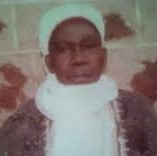
HRH. AGABAIDU ABRAHAM AJENE OKPABI – OCHI’IDOMA II (1924-1995) PROCEEDED ON HUNTING
Agabaidu Abraham Ajene Okpabi, Och’idoma ll, His Royal Highness, was born in 1924 in the district that is now the obi local government area in the state of Benue.
Between 1932 and 1940, HRH, Ajene Okpabi attended Woma Metropolitan Primary School Otukpo (now Methodist Central Primary School Otukpo), where his leadership abilities were initially observed. In his last year of primary school, he was promoted to head boy.
When HRH Ajene Okpabi finished primary school in 1952, he worked as a health worker until he was named the district head of Ito, or okwubi, at the age of 28. He also assumed the role of president of the Idoma Native Authority (NA) Area court in the ito District upon this appointment. The Idoma NA administration liked his reign as okwubi because it was a time of increased tax collection, commerce, and primary education in the ito District.
As a result of this appointment, he was also named President of the Ito District’s Idoma Native Authority (NA). The Idoma NA administration supported his reign as Okwubi because the Ito district had seen significant increases in tax collection, commerce, and primary education during this time.
In recognition of Ajene Okpabi’s outstanding leadership as Okwubi, the Idoma NA allowed him to take administrative courses in 1954. After that, they appointed him to the Executive Council, where he held various positions as Councillor overseeing the judiciary, prisons, finance, and police departments. Ajene Okpabi’s political stature was further enhanced in 1956 when he was elected to the inaugural Northern Nigeria House of Assembly, which was established to politically ready Northern Nigeria for Nigeria’s impending independence from Britain.
Ajene Okpabi’s life was about to take a drastic turn in 1960. After the demise of his father-in-law, HRH Ogiri Oko, the Och’Idoma I, 22 district heads within the Idoma NA convened and selected Ajene Okpabi as Och’Idoma II. Queen Elizabeth II formally bestowed upon him his staff of office. Some opposed his appointment as Och’Idoma, arguing that since the Igede people are not Idoma and therefore a “stranger” shouldn’t be able to take the throne, this was unfair.
Despite the initial difficulties, Ajene Okpabi’s leader helped him overcome them, and he went on to rule for 35 years. He received two national honors during this period: the Commander of the Order of Niger (CON) and the Order of the Federal Republic (OFR). As a member of the Consultative Assembly of Leaders of Thought, a group that attempted to resolve the conflict between Nigeria and Biafra, he was able to use his mediation skills during the Nigerian Civil War in the late 1960s.
In 1970, the Benue Plateau State Government promoted the Och’Idoma to the rank of First Class chief. The majority of observers viewed this promotion as a blatant demonstration of the prestige that Ajene Okpabi had brought to the Och’Idoma position.km
Similar to the 1960s, Ajene Okpabi was one of the 13 distinguished Benuese citizens chosen to serve on the National Constitutional Conference (NCC), which was established by the military government in 1994 to assist in resolving the political impasse brought about by the annulment of the presidential election held on June 12, 1993. He spearheaded the push for the establishment of Apa State while he was at the NCC, continuing to fight for the rights of the Idoma people.
Throughout his reign, Ajene Okpabi served as a father figure to the Idoma people, offering much-needed guidance on matters of Idoma tradition and maintaining his neutrality in all of the Idoma land’s disputes.
1995 saw HRH Agabaidu Ajene Abraham Okpabi proceeded on a hunting expedition.
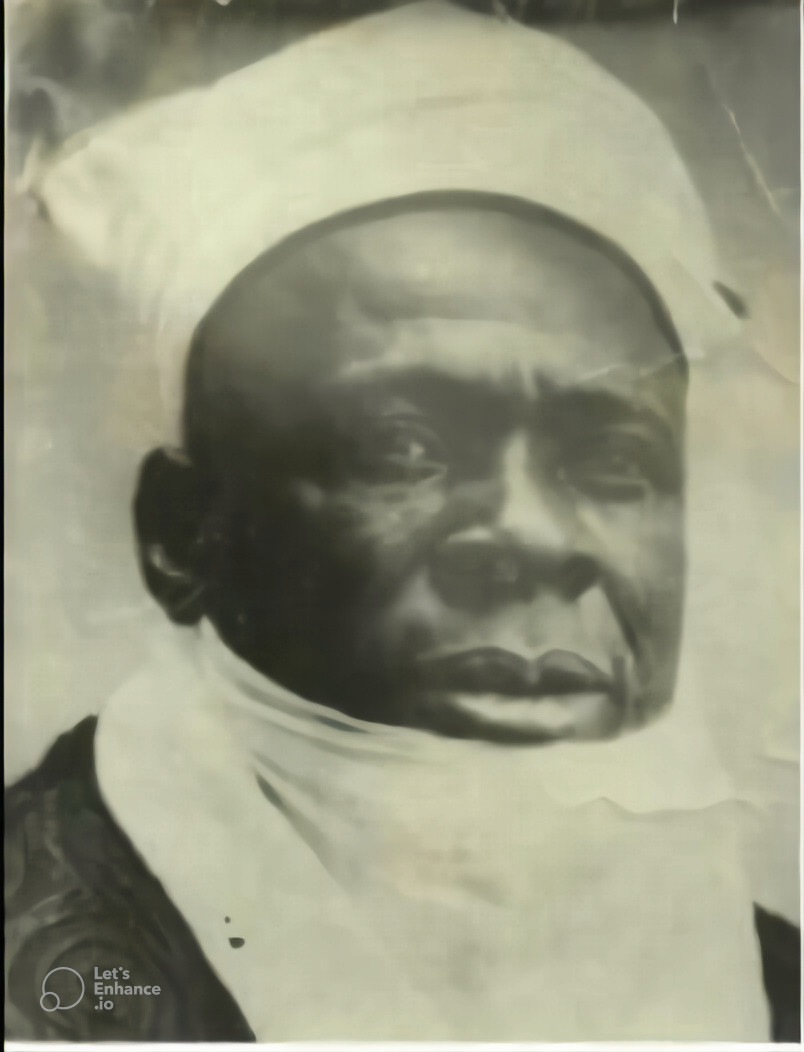
HRM. AGABA IDU OGIRI OKO – OCH’IDOMA I (1923 – 1960) THEN PROCEED ON HUNTING
His Royal Highness, Ogiri Oko, Och’Idoma I was born in 1903 and he was the third son of his father, Oko Ode of Ai’Ode clan of Adoka and the only son of his mother, Alonyenu (Anyenu) of Ai’Ochanya clan of Iga Okpaya.
Ogiri spent his early childhood with his maternal family in Epe and as a young man he took his turn in guarding his uncle’s millet farm against birds. This farm guarding assignment involved young boys staying on a built deck on the farm for days and making noises to keep birds at bay.
During Ogiri’s time in Epe, there was an outbreak of smallpox and Ogiri and his guard partner contracted the deadly disease during their stay on the farm. While Ogiri survived, his guard partner died from the disease. Ogiri was reported to have brought down the corpse of his guard partner from the deck and buried him before finding his way home a few days later.
On hearing the news of the smallpox outbreak, Anyenu sent messages to her brothers for Ogiri to return to Adoka. And by the following farming season, Ogiri now a tall, handsome, vibrant and hard-working man in his early twenties who had fluent command of Idoma, Igala, Hausa and Epe languages returned to his parents in Adoka.
Back home in Adoka, Ogiri with his loveable and generous spirit, lived a normal and responsible life according to the customs and traditions of the time. It was no surprise when Anyenu married a wife for him.
Ogiri was later to become the Alegwu of Adoka and that was because Oko, who was the Alapa and next in line to become Alegwu, stood aside for his son to become the Alapa after due consultations with Adoka elders and when the reigning Alegwu died, Ogiri became the Alegwu of Adoka. By this time, he already had four wives.
Upon creation of the Idoma Native Authority by the Northern Nigeria Colonial Administration, the need arose for a single chief for Idoma people who hitherto had no clear distinct leader and were politically organised under district clan heads. This development led to the election of Ogiri as Och’Idoma by the twenty-two district clan heads in Idoma Land in 1947.
After his election as the first unitary ruler of Idoma Land, Ogiri encountered opposition to his leadership and the strongest opposition was from a new movement of newly western educated Idoma youths called Idoma Hope Rising Union. These youths were against his rule mainly because Ogiri had no formal education and they obviously did not take into account his multi-lingua capabilities especially his fluent command of Hausa which was the lingua franca of Northern Nigeria at the time.
What Ogiri Oko lacked in western education, was more than amply compensated for in foresightedness, a strong will and presence of mind and body. As head of the Idoma Native Authority, Ogiri, in post-World War II period went on to implement programmes and reforms that made Idoma people and Idoma Land the centre of development within the lower Northern Nigeria. He created the modern day identity of the Idoma people in areas of town planning. He expanded Otukpo, the main town of the Idoma people by dividing Otukpo town into distinct neighbourhoods, with broad streets that have not been improved upon since the 1950s.
He increased the exposure of Idoma people to western education by soliciting the inland movement of missionaries from the East. Before secondary schools were established in Idoma Land, brilliant Idoma sons were sent to secondary schools in Uzuakoli, in the Eastern region and Katsina College in the Northern region.
Aside from education and town planning, Ogiri Oko was instrumental to the building of hospitals, tarred roads, telecommunication connectivity and centralised water supply system in Otukpo. During his reign, he also enacted policies to encourage increase in commerce, by creating district markets, and legislating against farmers carrying their goods for more than ten miles to markets that are visited by commodity traders from the Eastern part of the country.
Ogiri Oko in his capacity as Och’idoma, was a member of the Northern House of Chiefs until he embark a hunting expedition in 1960. He was succeeded on the throne by his son-in-law, Ajene Okpabi.